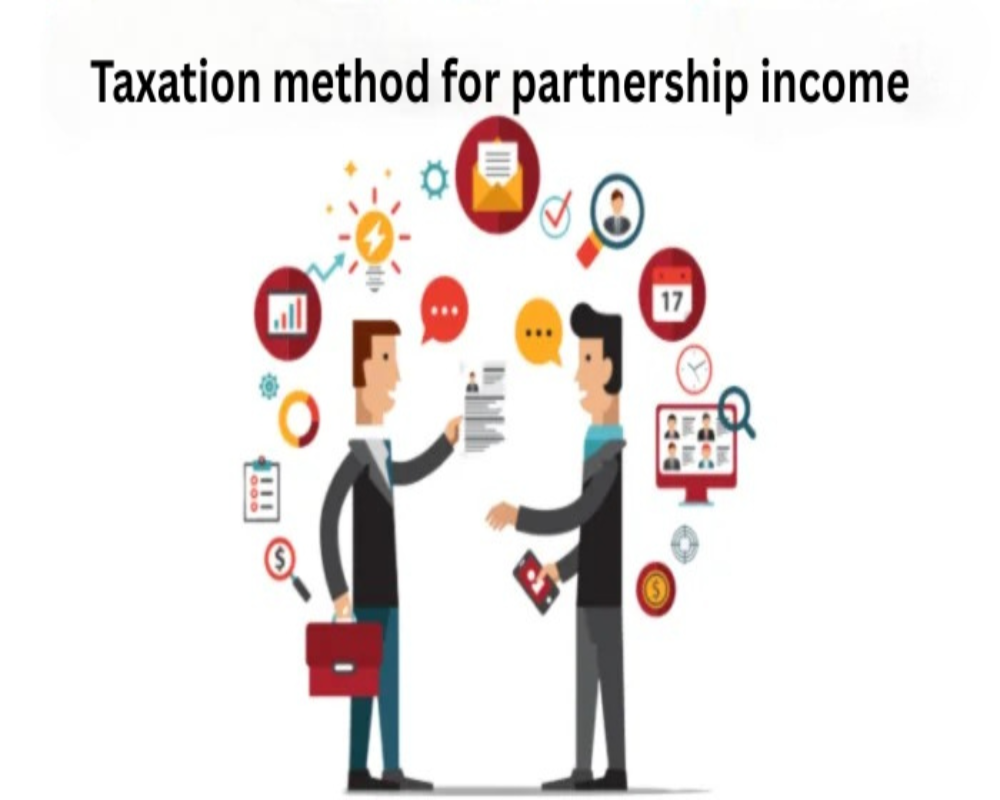Introduction
In India, the taxation of partnership income is governed by the Income Tax Act, 1961. A partnership firm, whether registered or unregistered, is treated as a separate taxable entity distinct from its partners. The income earned by the firm is subject to tax at the firm level, and how this income is calculated, taxed, and allocated to partners is carefully regulated. The law allows deductions for certain expenses, including partner remuneration and interest on capital, subject to prescribed limits. Additionally, the share of profit received by partners from the firm is exempt from further tax in their hands. Understanding the taxation method applicable to partnership income is crucial for compliance, financial planning, and avoiding disputes during assessment.
Computation of Taxable Income of the Firm
The first step in taxation is to compute the net taxable income of the partnership firm. This includes income from business or profession, capital gains, income from house property, and other sources. From the gross receipts, all admissible business expenditures are deducted. These include rent, salaries, depreciation, travel, administrative costs, and other operating expenses. Additionally, deductions for interest on capital and partner remuneration are permitted, provided they comply with Section 40(b) of the Income Tax Act and are authorized by the partnership deed. The resulting figure is the firm’s taxable income on which tax is levied.
Rate of Income Tax Applicable to Partnership Firms
The income of a partnership firm is taxed at a flat rate of 30% irrespective of the amount of income. In addition to the basic income tax, a health and education cess at the rate of 4% is applicable on the tax amount. If the income of the firm exceeds ₹1 crore, a surcharge of 12% is also levied. These rates apply uniformly to all partnership firms that are assessed as such under the Income Tax Act. Unlike individuals, firms do not enjoy slab-based tax rates or basic exemption limits, making the flat rate application mandatory.
Allowable Remuneration and Interest to Partners
Section 40(b) governs the limits and conditions under which a partnership firm can claim deductions for remuneration and interest paid to partners. Interest on capital is deductible up to 12% per annum. Remuneration is allowed only to working partners and must be authorized in the partnership deed. The maximum allowable remuneration is:
– On the first ₹3,00,000 of book profit or in case of a loss: ₹1,50,000 or 90% of book profit, whichever is higher
– On the balance of the book profit: 60%
Any amount exceeding these limits is disallowed and added back to the taxable income of the firm. These rules ensure fair taxation and prevent excessive profit withdrawal under the guise of expenses.
Taxability of Partners’ Share in Income
The share of profit allocated to partners from a firm that is assessed as a partnership under the Income Tax Act is exempt from tax in the hands of the partners under Section 10(2A). This ensures that the same income is not taxed twice—once in the hands of the firm and again in the hands of the partners. However, remuneration and interest received by partners are taxable as “Business or Professional Income” in their returns. These receipts must be declared in the partner’s income tax return under the applicable head.
Return Filing and Audit Requirements
The partnership firm must file its return of income annually using Form ITR-5. If the firm’s turnover exceeds ₹1 crore (for business) or ₹50 lakhs (for profession), it is required to undergo a tax audit under Section 44AB and submit the audit report in Forms 3CA and 3CD. The due date for filing returns is July 31 for non-audited firms and October 31 for firms subject to audit. If the firm opts for presumptive taxation under Section 44AD or 44ADA, it may be exempt from maintaining detailed books of account, provided the conditions of the scheme are met.
Tax Deducted at Source and Advance Tax
Partnership firms are liable to deduct tax at source (TDS) on payments such as salaries, rent, professional fees, and contractor charges. They must also deposit the deducted tax with the government and file quarterly TDS returns. Additionally, if the estimated tax liability exceeds ₹10,000 in a year, the firm is required to pay advance tax in four installments during the financial year. Failure to comply with TDS and advance tax obligations can attract interest, penalties, and disallowance of expenses under tax laws.
Carrying Forward and Set-off of Losses
Business losses incurred by the partnership firm can be carried forward for eight assessment years and set off against future business income. However, unabsorbed depreciation can be carried forward indefinitely. To avail of this benefit, the firm must file its income tax return within the due date. Capital losses and other category-specific losses are governed by respective set-off and carry forward provisions. Proper documentation and timely filing are essential to utilize these benefits during future assessments.
Conclusion
The taxation of partnership income in India is designed to ensure clarity, fairness, and legal distinction between the firm and its partners. While the firm is taxed as a separate entity, partners are taxed individually only on specific receipts such as remuneration and interest. The law provides various deductions and compliance mechanisms to promote responsible financial management. Filing returns, maintaining proper records, adhering to Section 40(b), and complying with TDS and audit requirements form the core of partnership taxation. By following the prescribed methods and planning efficiently, partnership firms can reduce tax liabilities, ensure regulatory compliance, and maintain smooth financial operations.
Hashtags
#PartnershipIncome #TaxationMethod #BusinessTax #PartnershipTax #TaxPlanning #TaxStrategy #SmallBusinessTax #IncomeTax #TaxCompliance #TaxLaw #Partnerships #TaxAdvice #FinancialPlanning #TaxDeductions #TaxReturns #BusinessFinance #Entrepreneurship #TaxEducation #TaxConsultant #TaxSeason #TaxTips #WealthManagement #TaxProfessionals #Taxation101 #PartnershipTaxation


0 Comments